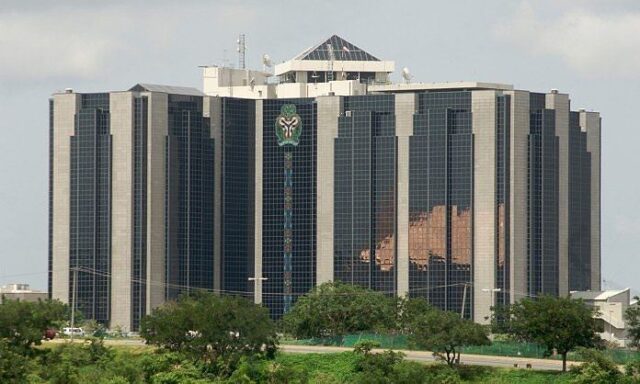The Central Bank of Nigeria (CBN) has announced the discontinuation of the three free monthly withdrawals on other banks’ Automated Teller Machines (ATMs) and introduced a charge of N100 per N20,000 withdrawal.
This policy, set to take effect from March 1, 2025, has sparked reactions from bank customers across the country.
The directive was contained in a circular titled “Review of Automated Teller Machine Transaction Fees”, signed by the Acting Director of the Financial Policy and Regulation Department, John Onojah.
The circular stated: “The three free monthly withdrawals allowed for Remote-On-Us (other bank’s customers/Not-On-Us consumers) in Nigeria under Section 10.6.2 of the Guide shall no longer apply.”
According to the new policy, ATM withdrawals at a customer’s own bank remain free, but withdrawals at another bank’s ATM within bank premises will attract a charge of N100 per N20,000.
- Boko Haram IED Explosion on Borno Road Kills Eight, Wounds Others
- EFCC Opens Probe of 24 Nigerian Young Men Detained in Ghana over Suspected Cybercrimes
- Former CBN Governor Emefiele Attempts To Regain Forfeited Abuja Estate; Court Dismisses the Attempt
- King Sunny Ade’s House Divided as Daughter Alleges he has Been Kidnapped; Other Family Members Deny Claim
- You Can Gather All Governors But If Nigerians Reject You, it is Over — El-Rufai Tells Tinubu
- Woman Leaves Husband after Falling in Love with ChatGPT
Additionally, withdrawals from off-site ATMs will incur the same N100 fee, plus a surcharge of up to N500, which will go to the ATM deployer or acquirer and must be disclosed at the point of withdrawal.
For international ATM withdrawals, charges will be applied at the exact rate set by the international acquirer.
Explaining the rationale behind the policy, the CBN said it was necessitated by rising operational costs and the need to enhance ATM service efficiency.
“In response to rising costs and the need to improve the efficiency of Automated Teller Machine (ATM) services in the banking industry, the Central Bank of Nigeria has reviewed the ATM transaction fees prescribed in Section 10.7 of the extant CBN Guide to Charges by Banks, Other Financial and Non-Bank Financial Institutions, 2020 (the Guide),” the circular read.
It further noted: “This review is expected to accelerate the deployment of ATMs and ensure that appropriate charges are applied by financial institutions to consumers of the service. Accordingly, banks and other financial institutions are advised to apply the following fees with effect from March 1, 2025.”
Mixed Reactions from Customers and Experts
Following the release of the circular, bank customers and financial analysts expressed differing views on the development.
The Chairman of the Bank Customers Association of Nigeria, Dr. Uju Ogubunka, acknowledged that price increases were inevitable given the current economic climate but questioned the magnitude of the hike.
“It should have been expected. Other places have increased their fees. The only thing one can talk about is the extent of the increase. Electricity, telephones, and even the open market have recorded increases in prices. The issue should not be the increase but the extent of it. Is it reasonable? Is it affordable at this point in time?” he stated.
He further added: “It is not only banking services that are increasing fees. If you ask me, I will say let’s move on. Someday, these things will adjust themselves.”
However, financial analyst Segun Aremu expressed concerns over the impact on financial inclusion efforts, arguing that it could discourage banking for low-income individuals.
“In Nigeria, there are still a lot of people unbanked; this is more like a discouragement. We are looking at the masses, who have N10,000 and N20,000, who are going to be mostly affected. If you are in an area where there’s only one bank, you have to bear that extra cost. What we should be getting now is cheaper costs, not expensive costs of transactions,” he said.
Aremu suggested that the policy might be a strategic push to encourage electronic banking and reduce reliance on cash.
“This will bring more to banks, and more people will be forced to use electronic banking. I think they want to reduce dependency on cash as well, but at this point in the economy, people still need cash. We have not transitioned to mobile banking and such. We are getting there, but I feel like this is coming too early. The intentions may be good, but before March 1, when they will implement it, I hope we will see an improvement. Anyway, Nigerians are very adaptable.”
With the implementation date approaching, customers and financial experts will be watching closely to see how this policy affects banking habits and the broader economy.












